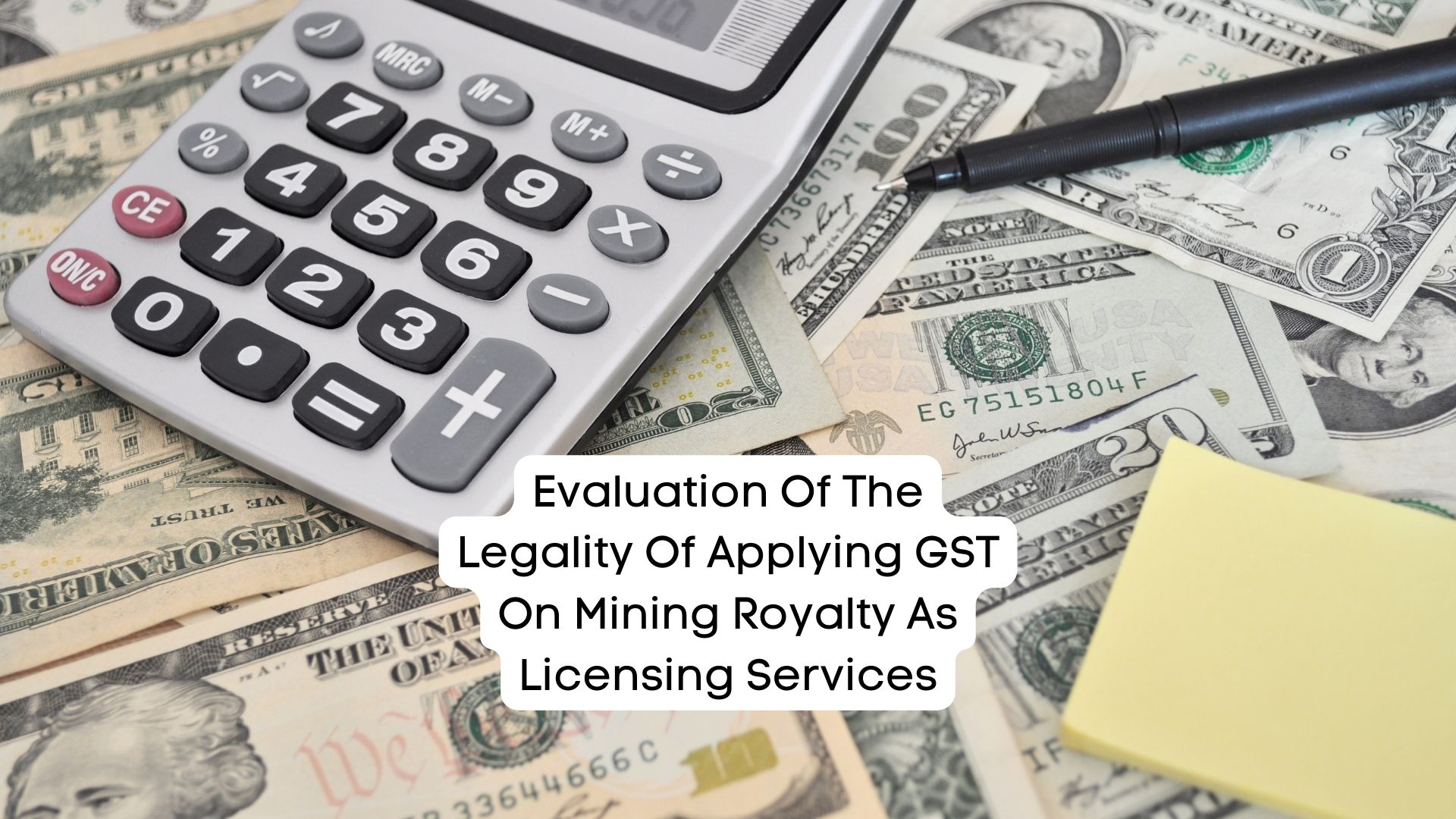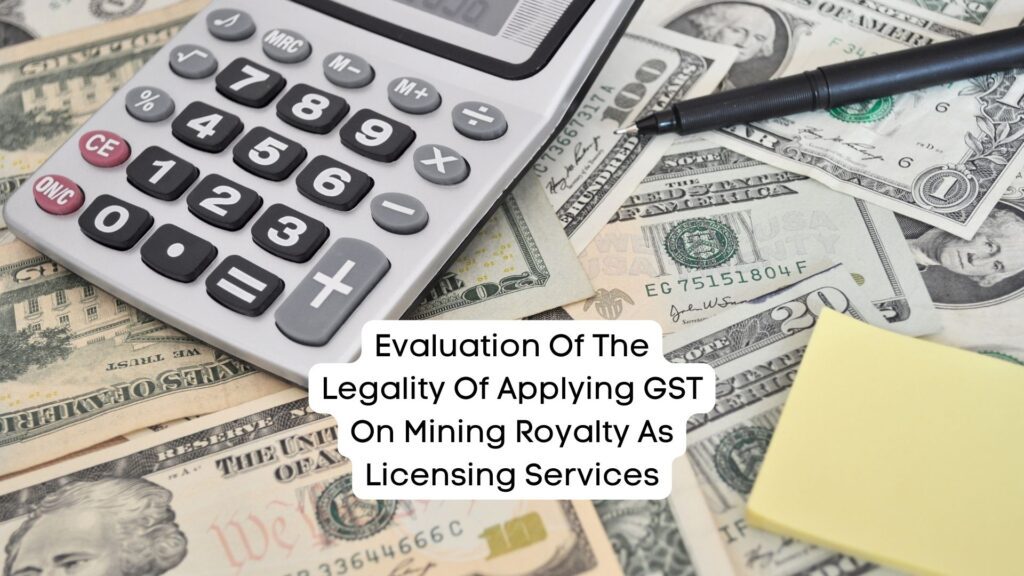
21 Feb Evaluation of the Legality of Applying GST on Mining Royalty as Licensing Services

Since its inception on July 1, 2017, the Goods and Services Tax (GST) has revolutionized India’s tax system, replacing previous indirect taxes like VAT, Excise duty, and Service tax. Royalty denotes payments made by one entity to another for utilizing intellectual property such as patents, copyrights, and trademarks. In the context of mining, companies pay royalties to either the landowner or the government for permission to extract minerals. Presently, there’s an ongoing discussion regarding the legality of categorizing GST on mining royalties as licensing services.
Context: Mining operations entail extracting minerals from the earth, which are considered natural resources owned by the state. Mining companies are required to obtain government licenses to extract these minerals and, as a condition, pay royalties based on the mineral value. Before delving into the legality of treating mining royalties as licensing services under GST, let’s clarify the concept of royalties and their GST applicability.
Understanding Royalty: Royalty, in the realm of Intellectual Property Rights (IPR), signifies compensation paid by one party to another for utilizing the latter’s intellectual property. In India, royalty falls under the purview of laws like the Copyright Act, 1957, the Patents Act, 1970, and the Trademarks Act, 1999.
GST Implication on Royalties: Under the GST regime, royalties paid for utilizing Intellectual Property Rights (IPR) are subject to GST as per Section 9(3) of the CGST Act, 2017. These payments are considered supplies of services, and the payers are liable to pay GST. The applicable GST rate depends on the type of IPR and the recipient’s category. For instance, a license fee for patents, trademarks, or designs incurs an 18% GST. However, registered recipients can claim input tax credit for the GST paid on such payments.
Royalty on Mining – Tax or Fee?: The debatable aspect surrounding mining royalties is whether they constitute a tax or a fee. Taxes are mandatory payments to the government without direct consideration, while fees are payments for specific government services. Regarding royalties, one can argue they resemble fees since they’re paid for the right to extract minerals, a service provided by the government.
GST Treatment of Licensing Services: Under GST, licensing services encompass granting the right to use intellectual property or similar products, including industrial or scientific equipment. Such services attract an 18% tax rate.
Legal Evaluation: The crux of the debate lies in whether mining royalties can be classified as licensing services under GST. Some argue that the right to extract minerals resembles the right to use industrial or scientific equipment, justifying such categorization. However, the Central Board of Indirect Taxes and Customs (CBIC) maintains that mining rights aren’t akin to intellectual property or equipment usage, thus not falling under licensing services.
Conclusion: The classification of mining royalties as licensing services under GST remains contentious. While arguments exist for both perspectives, seeking professional advice on the appropriate GST treatment is advisable for mining companies. This ongoing debate underscores the complexities within the GST framework and its application across diverse economic sectors.


No Comments